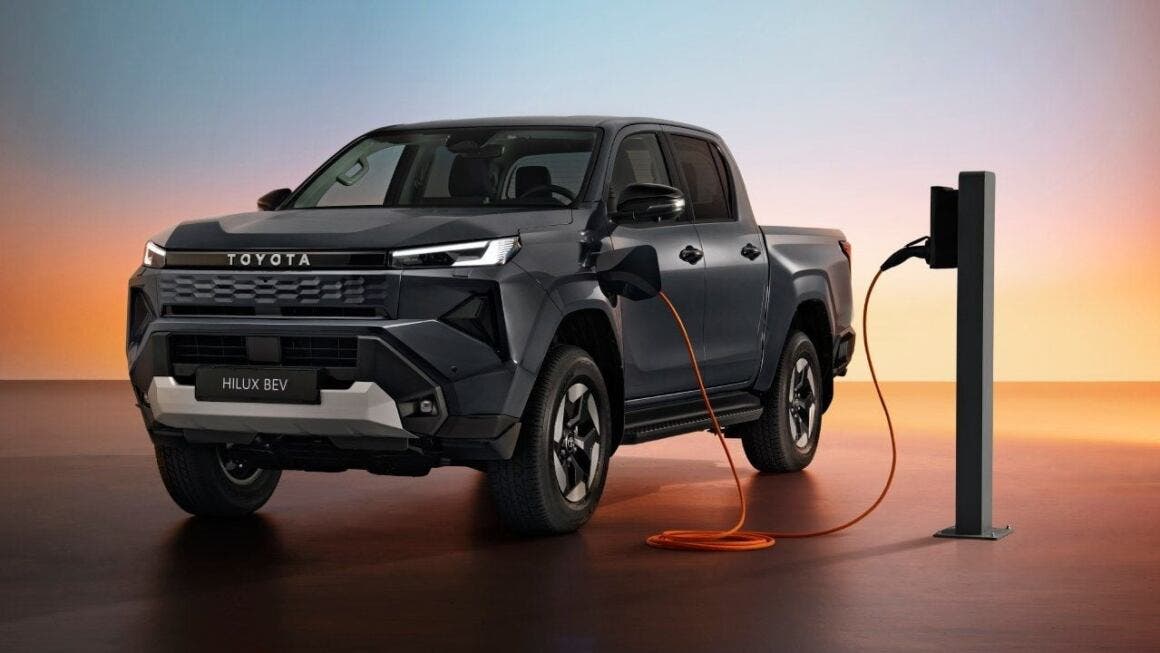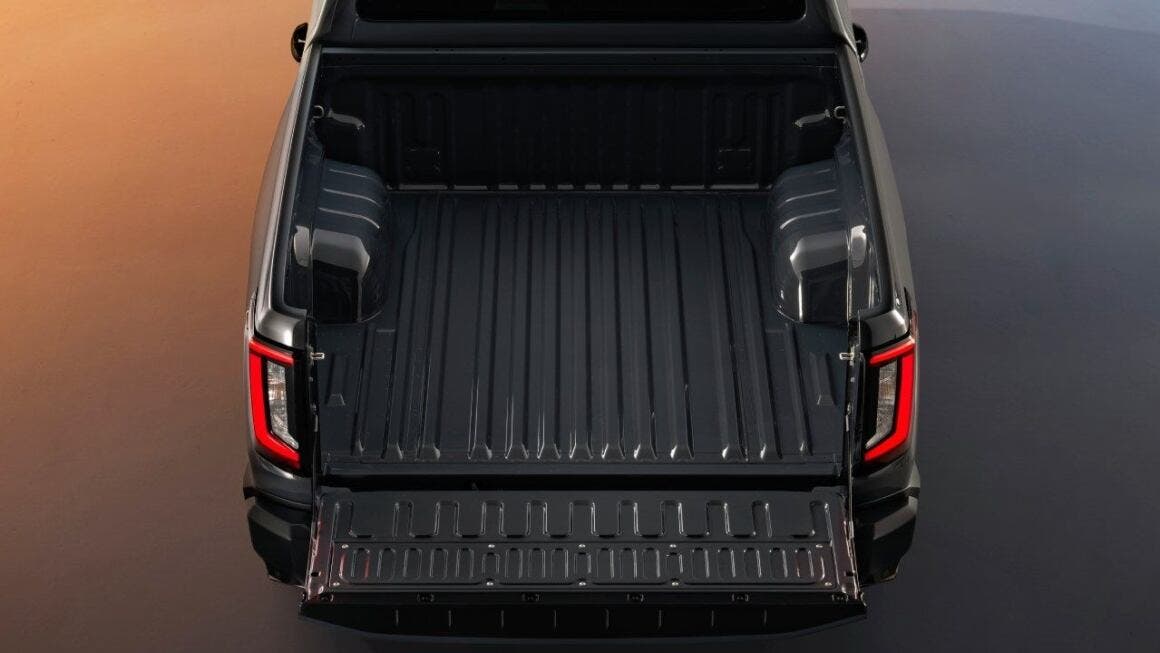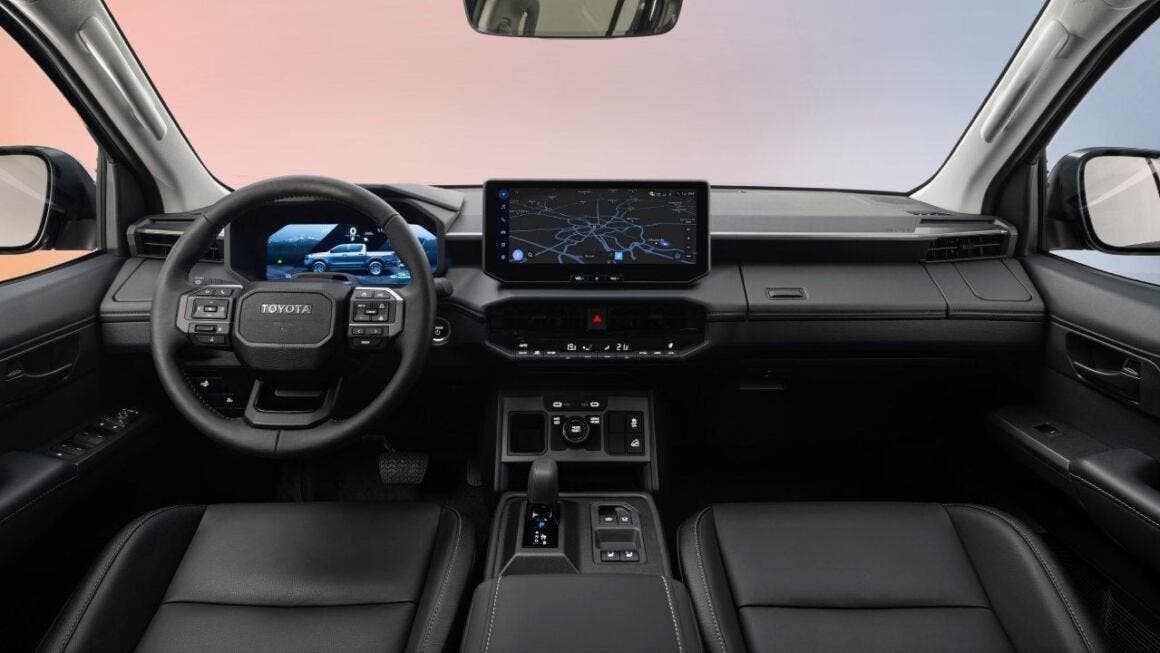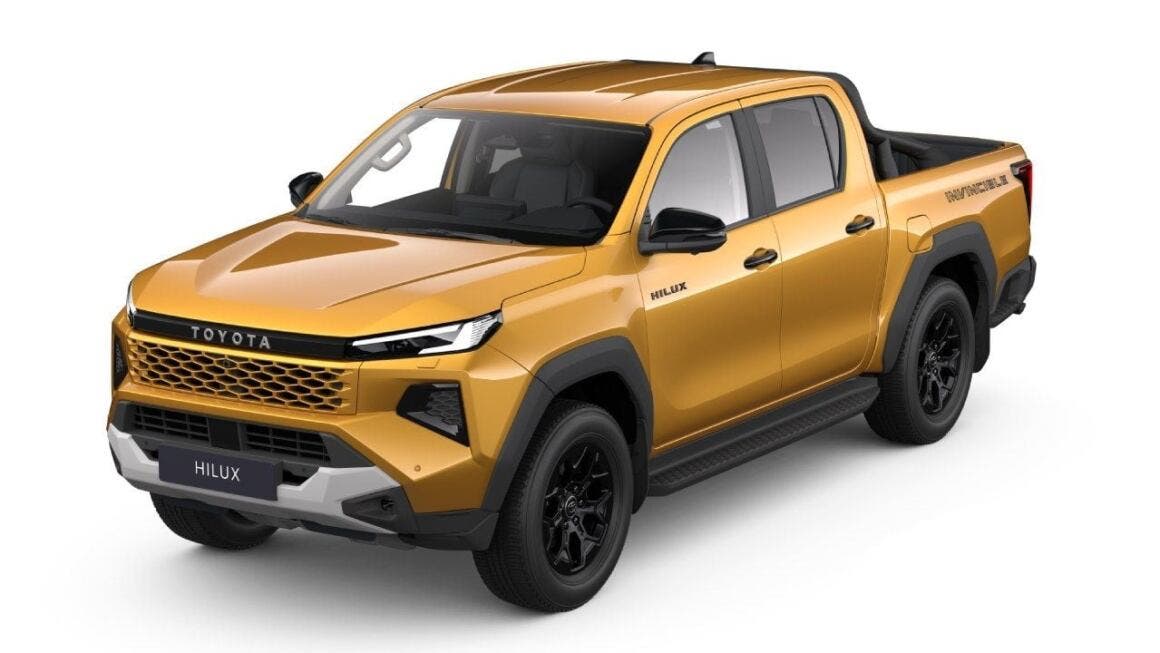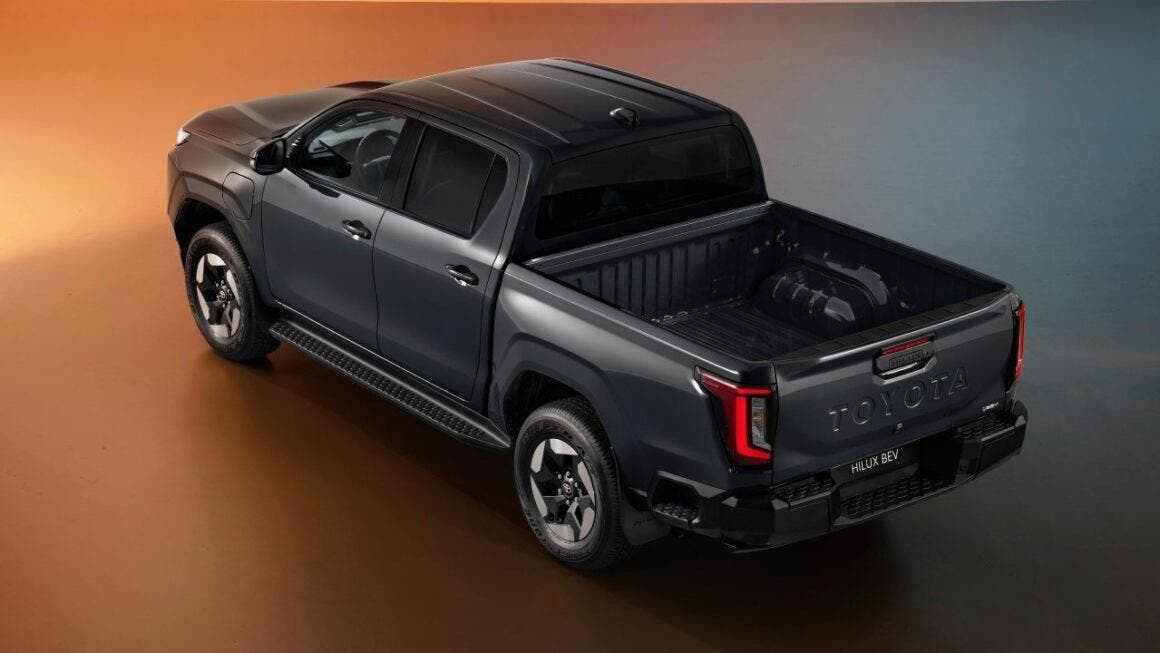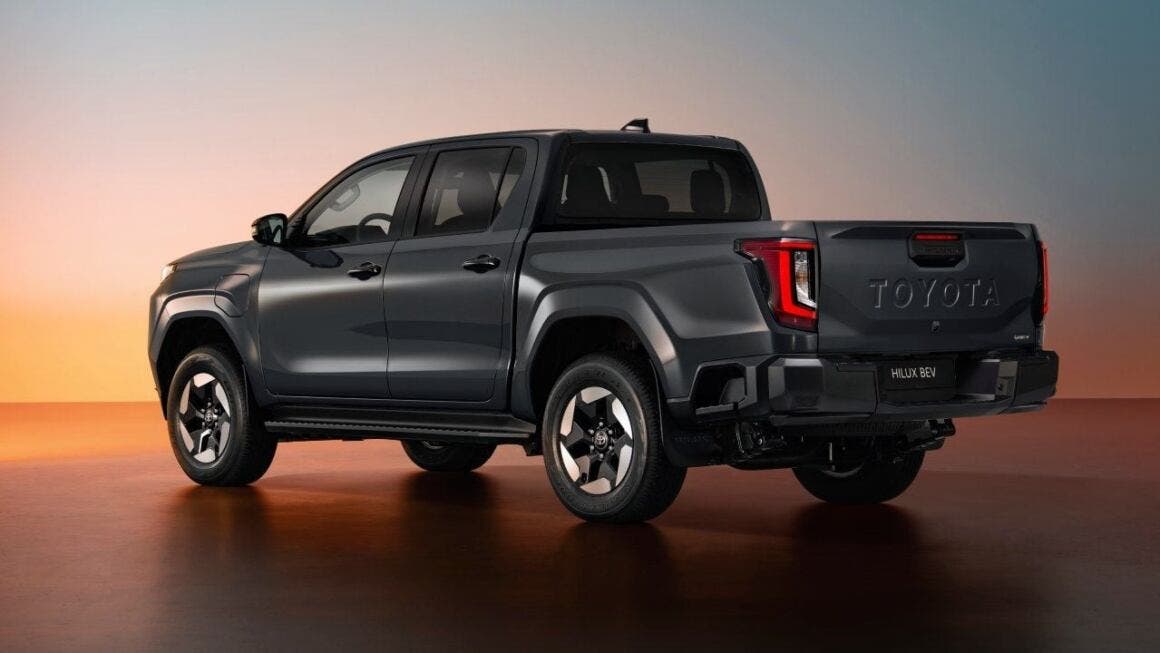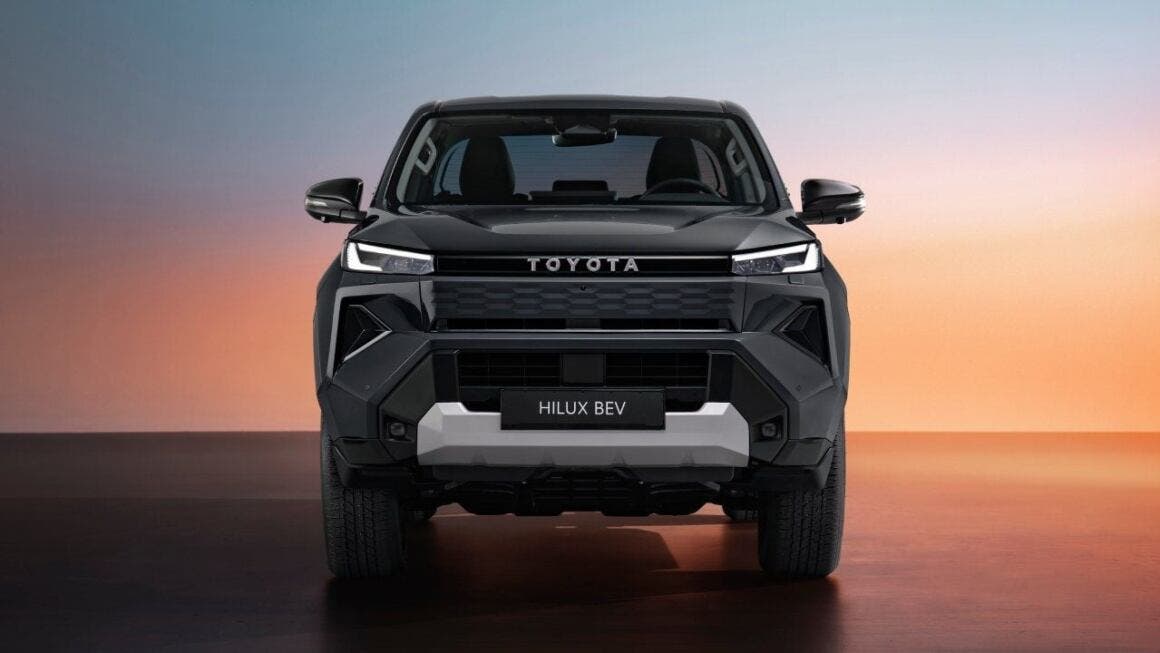Toyota has unveiled the ninth generation of its iconic Hilux, one of the world’s most popular and recognizable pickups. The new model marks not just a design evolution but the beginning of a new technological era, introducing powertrains never before seen in the lineup.
New Toyota Hilux: ninth generation debuts with electric and hydrogen power
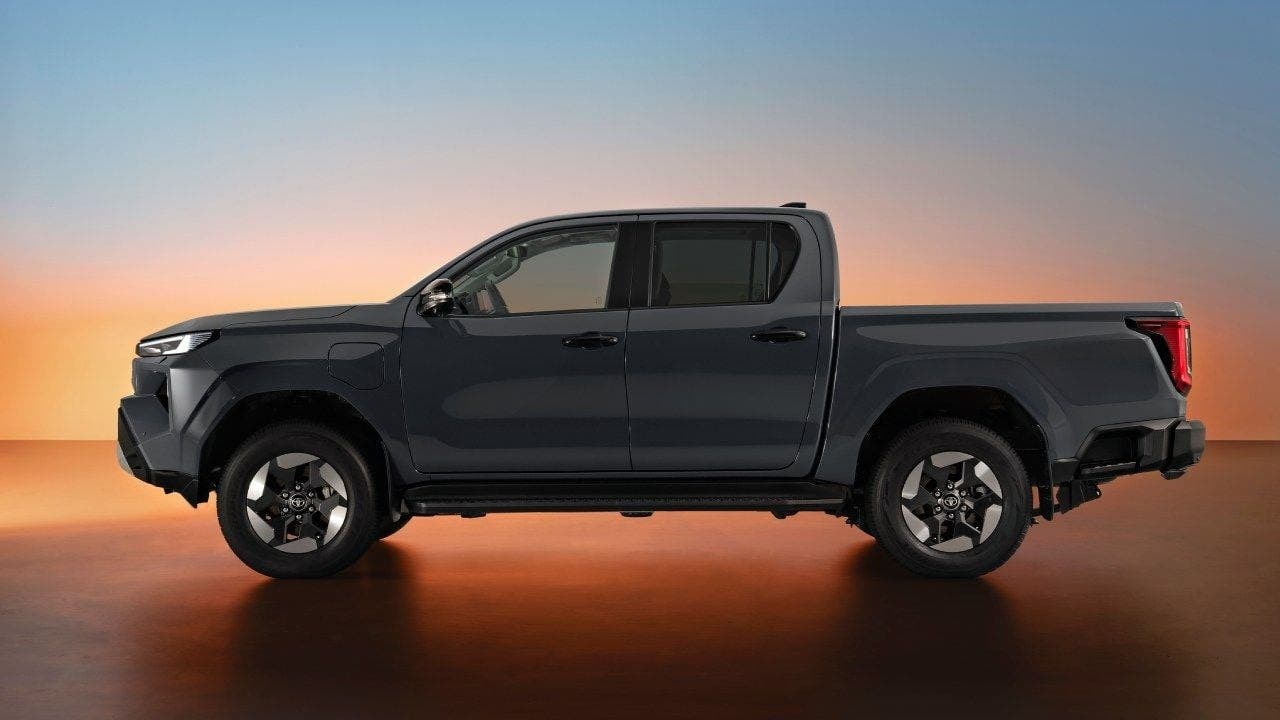
For the first time ever, the Toyota Hilux will be available as a fully electric model, alongside several other mechanical options that confirm the brand’s “multi-energy” strategy. Toyota continues its transition toward electrification while maintaining the versatility that has made the pickup legendary.
The new Hilux will be offered exclusively as a double-cab, in response to customer demand. The exterior retains the model’s trademark toughness but gains a more elegant, modern design featuring a new horizontal-bar grille with the Toyota name prominently displayed and slim LED headlights that reinforce its visual identity.
Inside, the cabin takes inspiration from the new Land Cruiser, adopting a more horizontal dashboard layout and higher-quality materials. The infotainment system includes displays up to 12.3 inches, digital instrumentation, wireless smartphone charging, rear USB ports, and advanced connectivity through the MyToyota app.
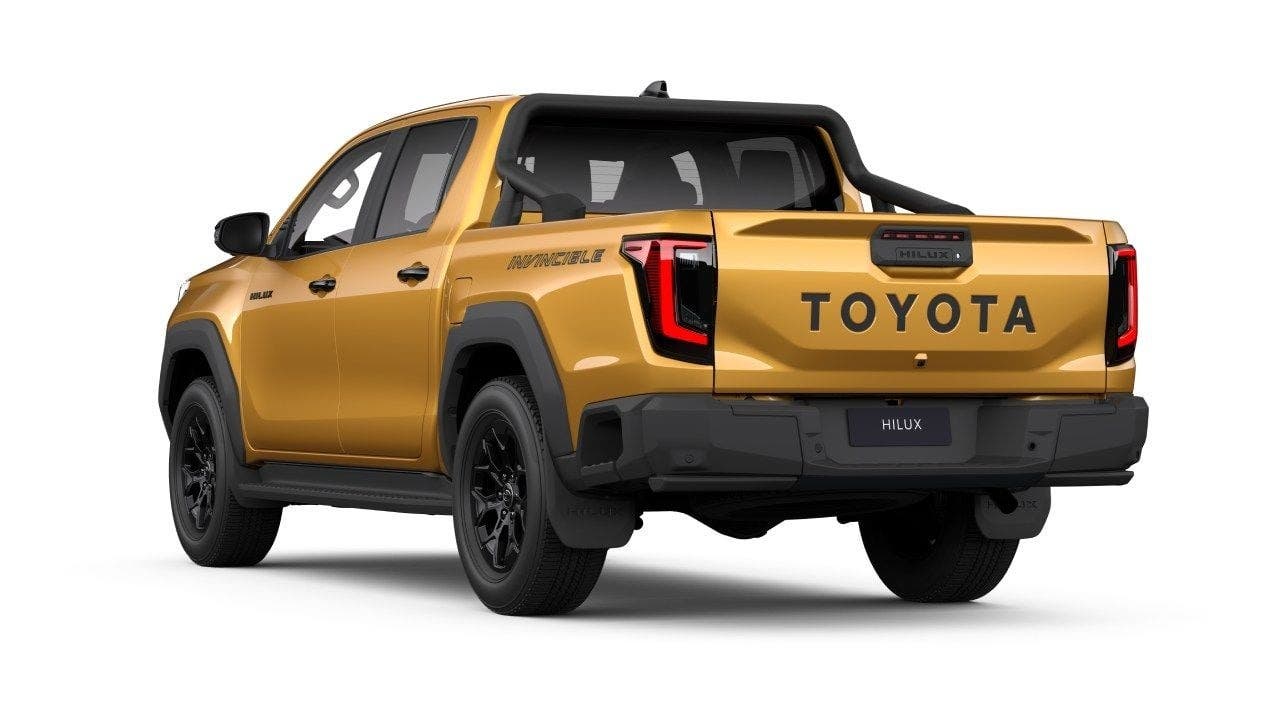
The electric version will be the first to debut, scheduled for December 2025. Equipped with a 59.2 kWh lithium-ion battery, it will offer a WLTP range of about 240 km (149 miles). The payload capacity is rated at 715 kg, with a towing capacity of 1,600 kg. Power is delivered through all-wheel drive, producing 205 Nm of torque at the front axle and 268 Nm at the rear, supported by a Multi-Terrain Select system and reinforced battery protection.
In 2026, a 48V mild-hybrid version will join the lineup, paired with the 2.8-liter turbo diesel engine producing 204 hp. This variant will deliver a 1-ton payload and up to 3,500 kg of towing capacity, preserving the durability and reliability that have long defined the Hilux. For Eastern European markets, Toyota will continue offering 2.7-liter gasoline and 2.8-liter diesel versions without electrification.
By 2028, Toyota also plans to launch a fuel-cell version of the Hilux, reaffirming the company’s confidence in hydrogen technology as a sustainable alternative to conventional propulsion.
